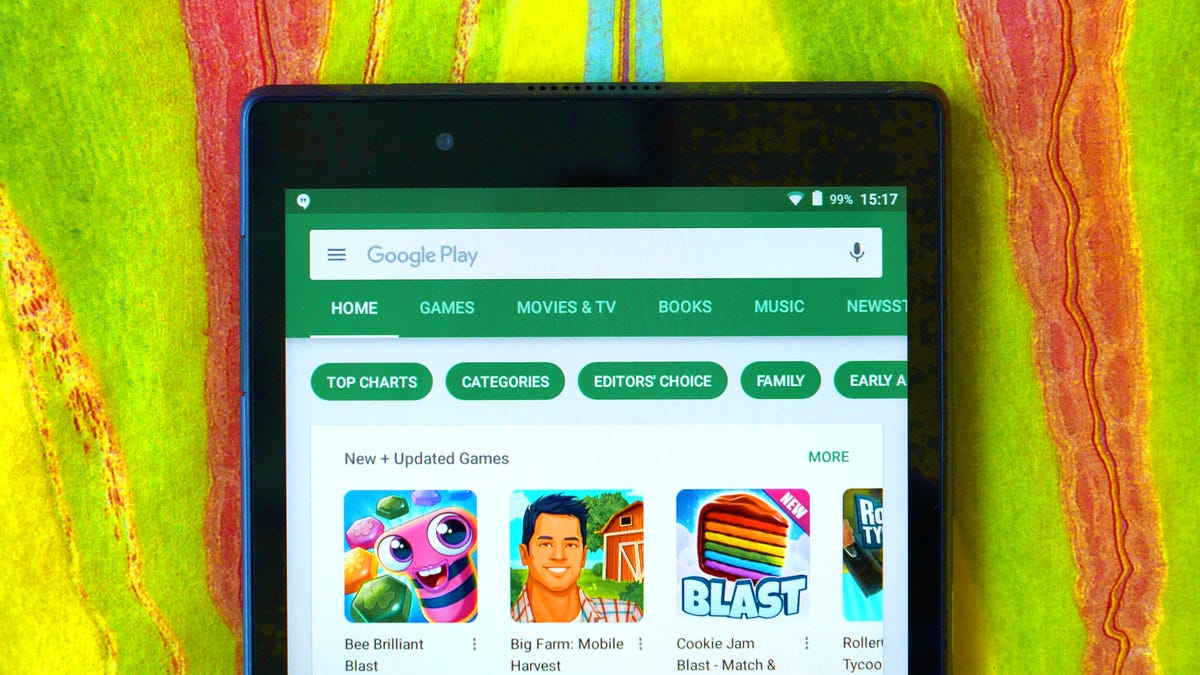Google took down more than 700,000 bad apps in 2017
From a flashlight app that actually stole your money to a fake WhatsApp that millions of people downloaded, it’s been a busy year for Google's security team.
Stamping out harmful apps is a never-ending effort for Google, but at least it's getting easier.
On Tuesday, the tech giant said it removed more than 700,000 apps from the Google Play store in 2017, up 70 percent from 2016. More than 2 billion Android devices worldwide rely on apps, whether they're for ordering a pizza or trying to catch Pokemon. Despite the useful features apps can bring, they also have the potential to do a lot of damage.
Last April, ESET, a security company, found that a seemingly harmless flashlight app on the Google Play store was actually malware dedicated to stealing your banking information. Avast, an antivirus company, found the same malware across several apps, like in games of Solitaire. Last September, Google had to delete 50 apps that had been downloaded millions of times before the malware was discovered.
Despite these apps managing to slip through the Google marketplace, the company said 99 percent of apps "with abusive contents were identified and rejected before anyone could install them."
Google was able to do that through machine learning designed to weed out apps with inappropriate content, malware and copycats, Andrew Ahn, the Google Play product manager, said in the blog post.
The algorithm is able to detect repeat offenders, and developers that try to abuse the system, Ahn said. Google removed 100,000 bad developers in 2017, he added.
The majority of deleted apps were copycats, made by developers trying to milk the success of popular apps. Google said it had taken down more than 250,000 copycat apps in 2017. A fake version of the popular chatting app "WhatsApp" was downloaded at least 1 million times before Google removed it last November.
Google said it's getting better at detecting harmful apps with its new algorithm, noting that it's been able to lower the number of people who end up downloading malware from its store. The company said that with Google Play Protect, which scans your phone, it's been able to reduce the number of potentially harmful apps by ten-fold compared with 2016.


